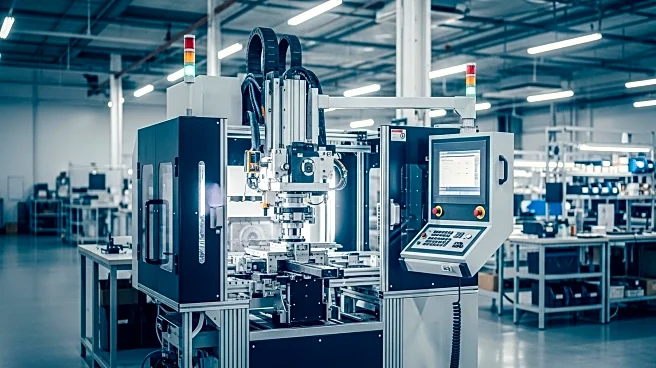What's Happening?
The Business Record hosted its annual Manufacturing Forecast event, focusing on the economic vitality of Iowa's manufacturing industry. Panelists, including Nicole Crain, Ernie Goss, Matt Koch, and Peter Orazem, discussed various issues such as tariffs, workforce shortages, and rural manufacturing opportunities. Orazem highlighted the challenges faced by rural areas in attracting manufacturing firms due to the lack of agglomeration economies. He noted that Iowa has lost approximately 4.6% of its manufacturing jobs since the pandemic, primarily in durable goods manufacturing related to agricultural equipment. The panel also addressed concerns about rising energy costs and the impact of tariffs on the agricultural sector.
Why It's Important?
The discussion underscores the significant challenges facing Iowa's manufacturing sector, which is crucial for the state's economy. Trade tensions and workforce shortages could hinder growth and competitiveness, particularly in rural areas. The loss of manufacturing jobs and the potential impact of tariffs on agriculture highlight vulnerabilities in the industry. Addressing these issues is vital for sustaining economic development and ensuring the viability of manufacturing in Iowa. The state's comparative advantage in energy production could offer opportunities, but strategic actions are needed to leverage this potential.
What's Next?
Future steps may involve exploring ways to support legal immigration and workforce development to sustain manufacturing growth. Orazem suggested making it easier for small firms to access the H1B visa program and considering state-level applications. Additionally, restarting state efforts to sponsor refugees could help address labor shortages. The impact of tariffs remains uncertain, and changes in administration could alter trade policies, affecting the manufacturing sector. Monitoring these developments will be crucial for stakeholders.
Beyond the Headlines
The broader implications of these challenges include potential shifts in rural economic landscapes and the need for policy adjustments to support manufacturing. The focus on incentivizing manufacturing in the U.S. and the role of automation could reshape industry dynamics. Ethical considerations around immigration policies and their impact on workforce development also warrant attention.









